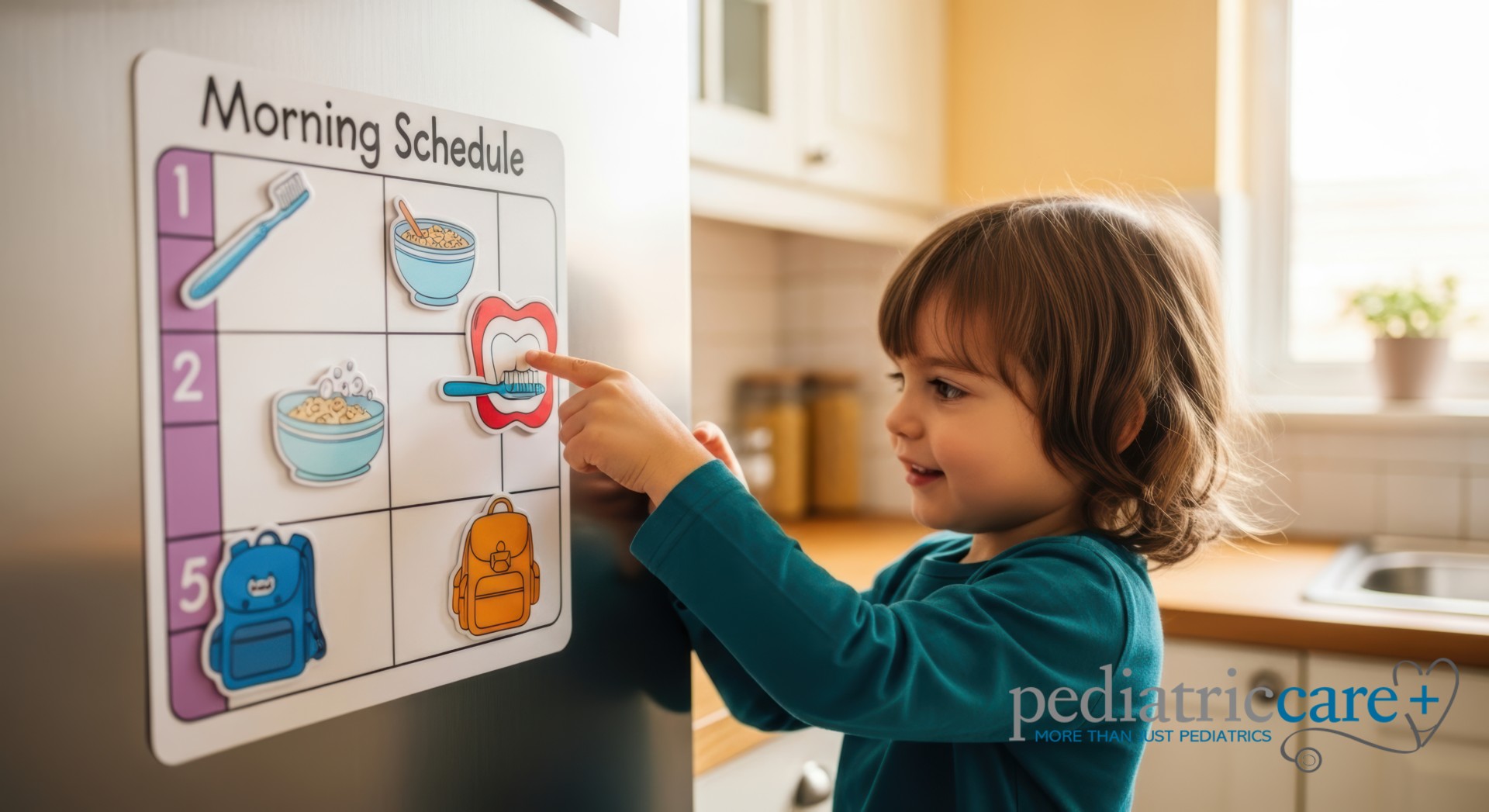As a pediatrician, I often remind parents that consistent daily routines for children are more than just a schedule—they’re a critical part of supporting children’s mental health and overall development. Predictable routines provide structure, security, and emotional stability that help children thrive both at home and at school.
Here’s why routines matter for children’s mental health, and how parents can use them to foster healthy child development.
-
Routines Create a Sense of Security for Children
Children feel safe when they know what to expect. A consistent daily schedule—like morning routines, meal times, and bedtime rituals—reduces anxiety and creates a sense of stability.
For children facing stress, change, or uncertainty, predictable routines offer a reliable anchor that supports emotional well-being. Security and stability in daily routines are key factors in promoting positive child mental health outcomes.
-
Structured Routines Support Emotional Regulation
Emotional regulation is a core skill that children develop over time. Regular routines, such as consistent sleep schedules, daily physical activity, and set homework times, help children manage their emotions more effectively.
By learning to follow predictable patterns, children gain tools to self-regulate and manage anxiety, frustration, and stress—critical skills for lifelong mental health.
-
Routines Promote Confidence and Independence
When children complete tasks like brushing teeth, dressing, or packing their backpack on their own, they develop confidence and a sense of accomplishment.
Independent routines reinforce the message: “I am capable.” This boosts self-esteem, supports healthy child development, and lays the foundation for resilience.
-
Family Routines Strengthen Emotional Connection
Shared routines—such as family meals, bedtime reading, or weekend activities—provide opportunities for parent-child bonding. These rituals foster trust and emotional security, which are essential for mental well-being in children.
Even small, daily routines send a powerful message: “You are loved, and you are supported.”
-
Consistent Routines Reduce Stress for Parents
Routines don’t just benefit children—they make parenting easier, too. Structured daily habits reduce chaos, making mornings and evenings smoother.
When parents feel more in control and less stressed, children notice and absorb that emotional tone. Healthy family routines create a calm, nurturing environment that promotes children’s emotional resilience.
-
Routines Help Children Navigate Transitions
Transitions—starting school, moving to a new home, or welcoming a sibling—can be stressful for children. Maintaining familiar routines provides continuity, helping children cope with change and feel secure.
Even a small ritual, like a bedtime story or post-school snack, can reassure children that stability and support are still present in their lives.
Tips for Creating Effective Daily Routines
- Start small: Focus on one routine at a time, like morning or bedtime.
- Involve your child: Children are more likely to follow routines they helped create.
- Stay flexible: Routines are a guide, not a strict rule. Occasional changes are healthy.
- Celebrate consistency: Praise effort and small successes to encourage adherence.
Bottom Line: Routines Are Key to Children’s Mental Health
Consistent routines provide children with a sense of safety, emotional stability, and confidence. They help children develop essential life skills like emotional regulation, independence, and resilience.
By creating predictable and supportive daily habits, parents can foster positive mental health, strengthen family connections, and support healthy child development.
